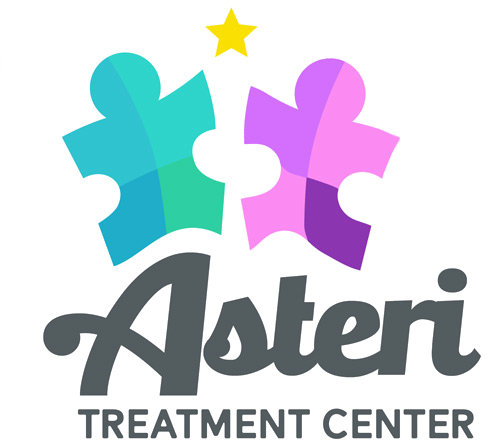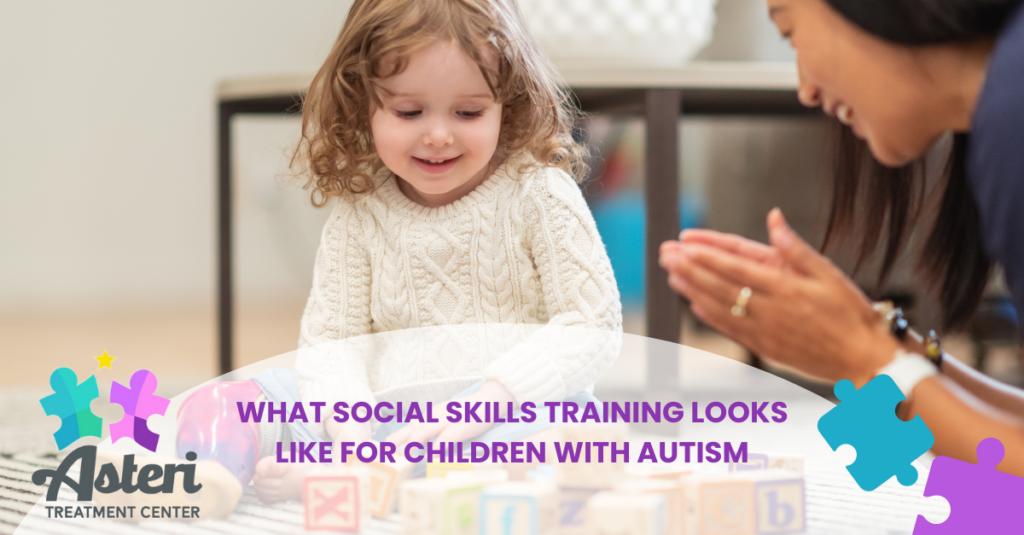Social skills don’t always come naturally to children with autism spectrum disorder (ASD). Simple interactions like taking turns, making eye contact, or understanding social cues can feel overwhelming. That’s where structured social skills training makes a real difference. At Asteri Treatment Center, we understand that every child learns differently. Our approach combines evidence-based ABA (Applied Behavior Analysis) techniques with engaging, play-based activities that help children develop meaningful social connections. Rather than sitting in a classroom-style setting, children learn through interactive experiences that feel natural and enjoyable.
Understanding Social Skills Challenges in Children with Autism
Children with autism often struggle with social communication and interaction in ways that can impact their daily lives. These challenges might include difficulty reading facial expressions, understanding when to speak or listen, sharing toys, or joining group activities.
These aren’t behavioral problems or signs of defiance. The autistic brain processes social information differently, which means traditional social learning doesn’t always work. That’s why structured social skills training becomes essential.
Social skills training provides explicit instruction in areas that neurotypical children often pick up naturally through observation. By breaking down complex social interactions into smaller, manageable steps, children with autism can build confidence and competence in social situations.
How ABA Supports Social Skills Development
Applied Behavior Analysis forms the foundation of effective social skills training. ABA uses scientific principles to understand how behavior works and how environmental factors influence learning.
In social skills training, ABA helps us identify specific behaviors to target, such as making appropriate greetings, waiting for turns, or responding to peers. We then create structured opportunities for children to practice these skills while providing immediate feedback and reinforcement.
The beauty of ABA in social skills training lies in its data-driven approach. Every interaction is observed and recorded, allowing our team to track progress objectively and adjust strategies as needed. This ensures each child receives personalized support that matches their learning style and pace.
The Power of Play-Based Learning
Here at Asteri Treatment Center, we know social and play skills development helps children to improve their social skills, to work better with others, and much more. Beyond that, it’s a lot of fun for your child.
Play serves as the perfect vehicle for social learning. Through games, imaginative scenarios, and interactive activities, children practice social skills without feeling the pressure that might come from more formal instruction. They’re simply having fun while building essential life skills.
Our play-based approach includes structured activities like board games that teach turn-taking, role-playing scenarios that practice conversation skills, and group projects that encourage cooperation. Throughout these activities, children are unlikely to feel like they’re “working.” Through the process of play, everything becomes more positive and more upbeat, making the learning experience that much more reinforcing.
Age-Appropriate Social Skills Training
Social skills training must match each child’s developmental level and individual needs. A preschooler’s program looks vastly different from training designed for school-age children or teenagers.
Early Childhood (Ages 3-5)
Young children focus on foundational skills like making eye contact, responding to their name, and engaging in simple back-and-forth interactions. Activities might include singing songs with gestures, playing peek-a-book, or practicing greetings with favorite characters.
School Age (Ages 6-12)
Older children work on more complex skills like initiating conversations, understanding personal space, and navigating playground dynamics. Training might involve practicing how to join a game, express frustration appropriately, or interpret social cues from peers.
Adolescents (Ages 13+)
Teenagers focus on skills needed for greater independence, such as understanding sarcasm, managing peer pressure, and developing friendships. Role-playing scenarios become more sophisticated, addressing real-world situations they’ll encounter.
Always, this treatment is designed to be appropriate for your child’s specific age group. As with all of our other services, it takes your family’s culture and values into account.
How We Track Progress in Social Skills Training
Measuring progress in social skills requires careful observation and data collection. Our trained experts use several methods to monitor your child’s development:
Baseline Assessment: Before beginning training, we conduct comprehensive evaluations to identify current skill levels and areas needing support. This creates a starting point for measuring improvement.
Session Data Collection: During each session, therapists record specific behaviors and responses. We track frequency of eye contact, number of appropriate social initiations, duration of peer interactions, and other measurable behaviors.
Video Analysis: Recording sessions allows our team to review interactions in detail, identifying subtle improvements that might be missed in real-time observation.
Parent and Teacher Reports: Regular check-ins with families and school staff help us understand how skills are generalizing to natural environments outside the clinic.
Standardized Assessments: Periodic formal evaluations using validated tools provide objective measures of progress over time.
Building Skills That Last Beyond Sessions
The ultimate goal of social skills training extends far beyond our therapy rooms. Our trained experts know how to make what seems like “just fun” and turn it into something that can serve your child well long after the session has ended.
Generalization strategies ensure skills learned during training transfer to real-world settings. We practice skills in multiple environments, involve family members in training, and create opportunities for children to use new skills with different people and in various situations.
We also focus on teaching children to recognize social situations and apply appropriate responses independently. Rather than memorizing scripts, children learn flexible thinking skills that help them adapt to new social challenges.
Family-Centered Approach to Social Skills Training
Families play a crucial role in social skills development. We provide parent training and support to help families reinforce skills at home and create opportunities for practice in natural settings.
Our approach recognizes that every family has unique cultural backgrounds, values, and communication styles. Social skills training is adapted to respect and incorporate these differences, ensuring skills are culturally appropriate and meaningful for each child.
Regular family meetings allow us to discuss progress, address concerns, and collaborate on strategies. Parents receive practical tools and techniques they can use to support their child’s social development throughout daily routines.
Creating Positive Social Experiences
One of the most important aspects of our social skills training involves creating successful social experiences. Many children with autism have faced social challenges or rejection from peers, which can create anxiety around social interactions.
Our controlled, supportive environment allows children to experience social success, building confidence and motivation to engage with others. Positive experiences during training help children develop a more optimistic view of social interaction and increase their willingness to try new social behaviors.
Peer interaction opportunities within our programs allow children to practice skills with others who understand their challenges. These interactions often lead to genuine friendships and provide natural motivation for continued social growth.
Preparing Your Child for Social Success
Social skills training for children with autism represents an investment in their long-term success and happiness. Through evidence-based ABA techniques, engaging play-based activities, and comprehensive progress tracking, children develop the social competence they need to build meaningful relationships and participate fully in their communities.
At Asteri Treatment Center, we’re committed to making social skills training an enjoyable, effective experience that respects each child’s individuality while building essential life skills. Contact us today to learn more about how our social skills training programs can support your child’s development and help them thrive in social situations.

